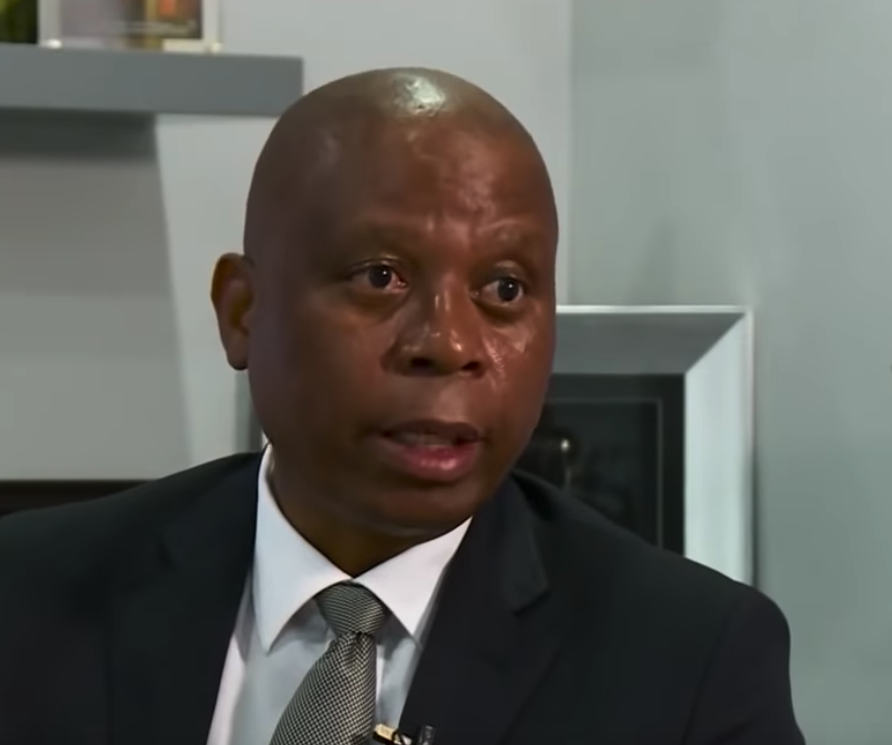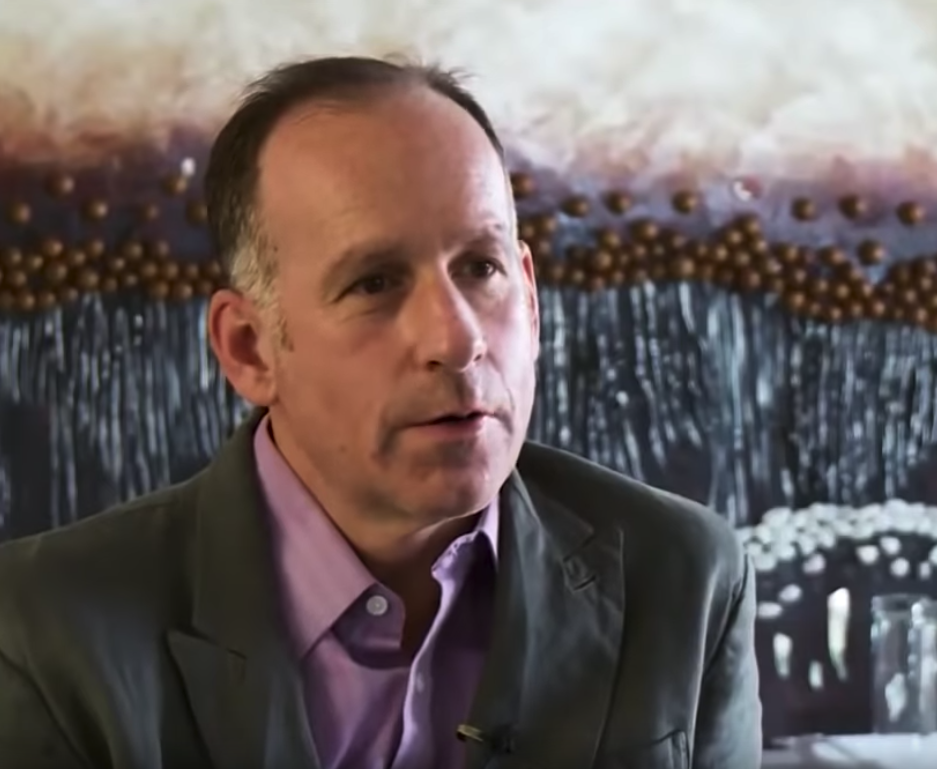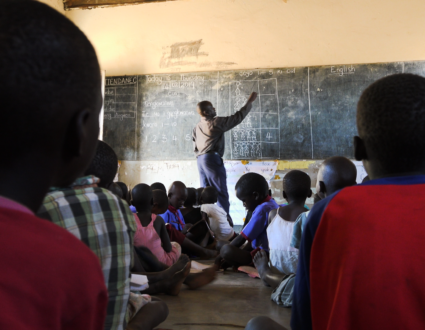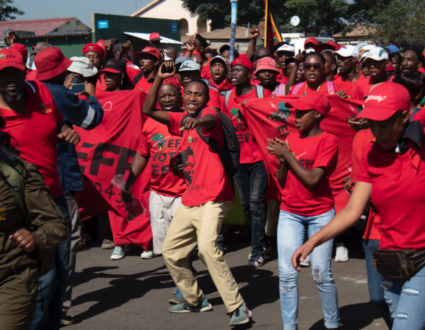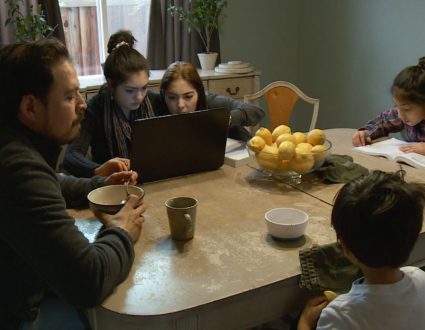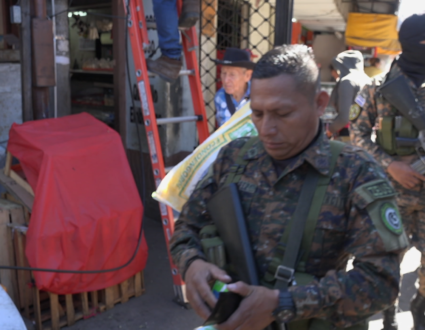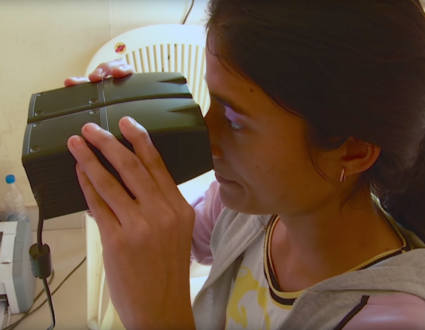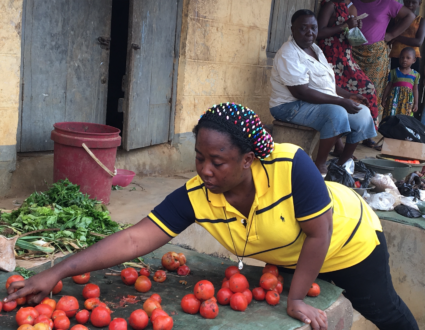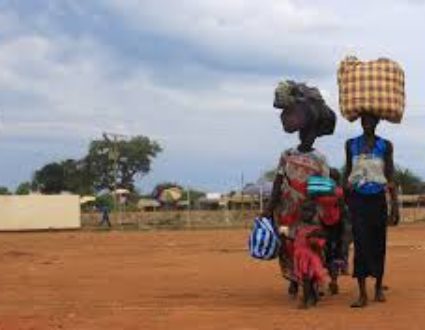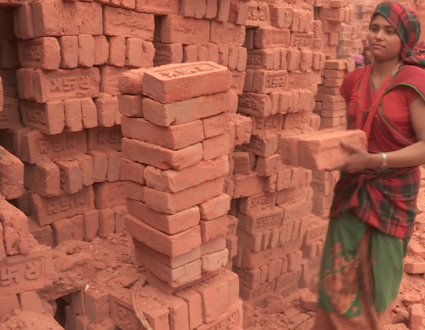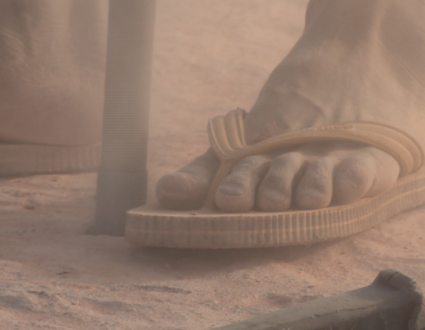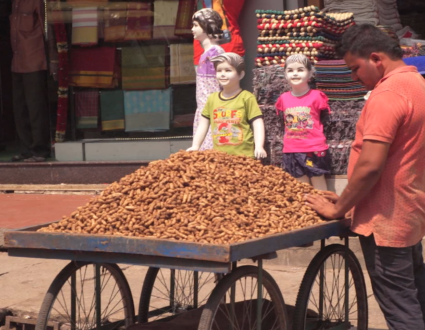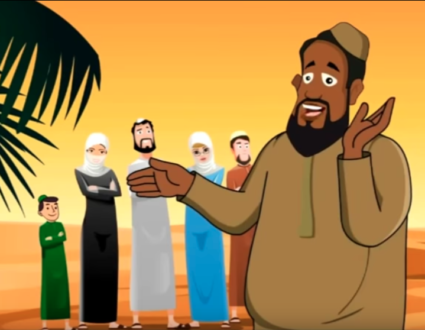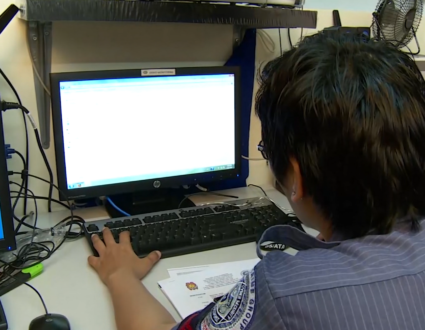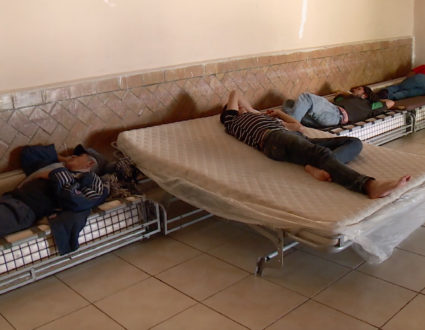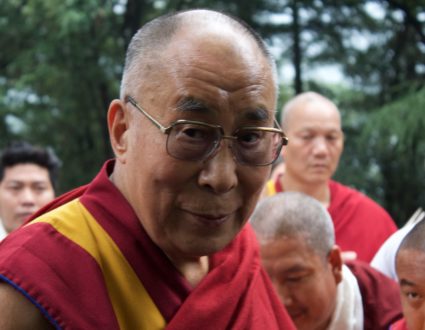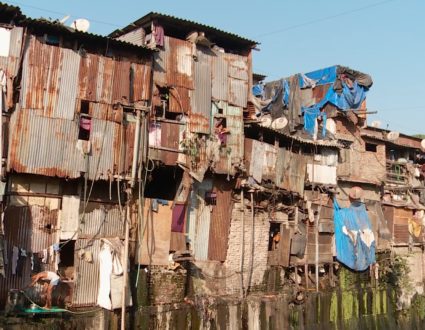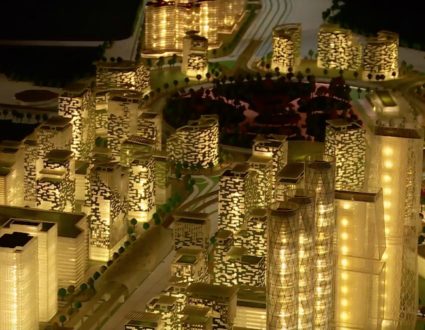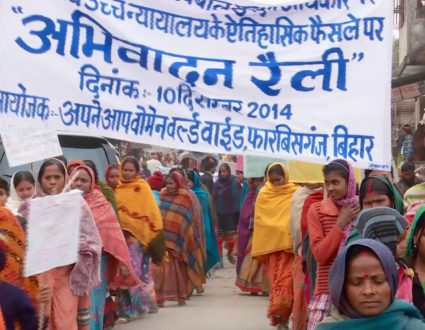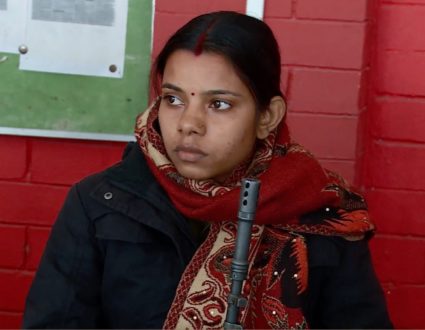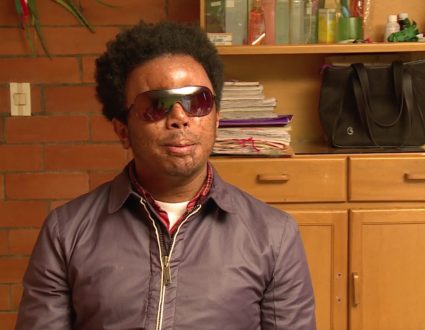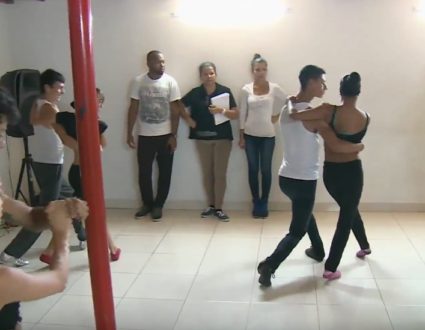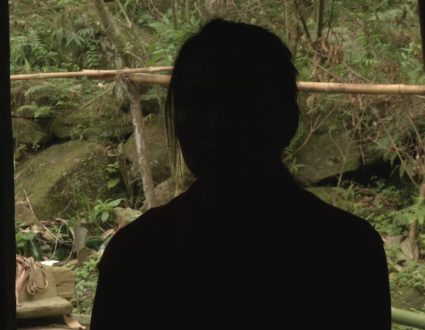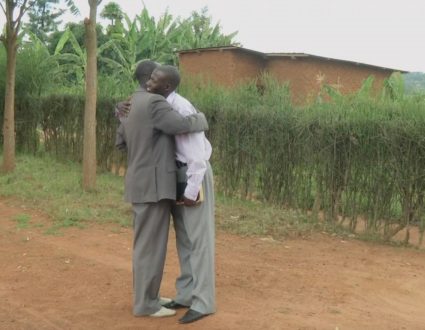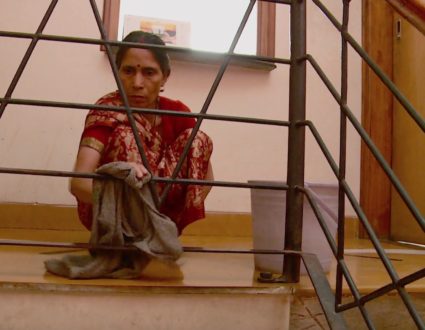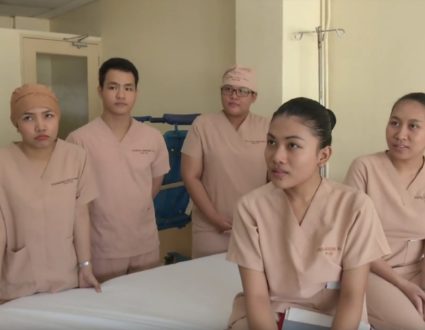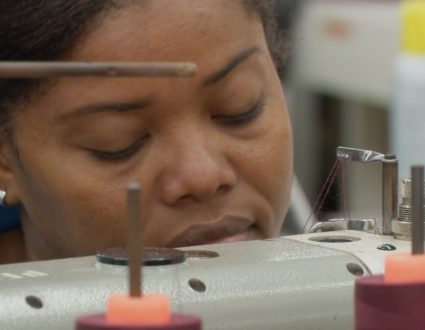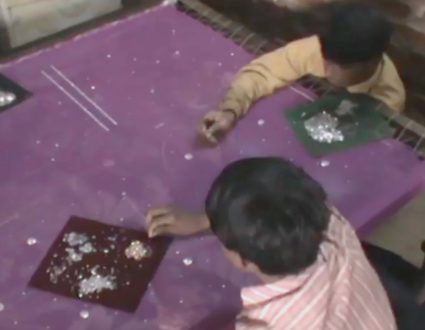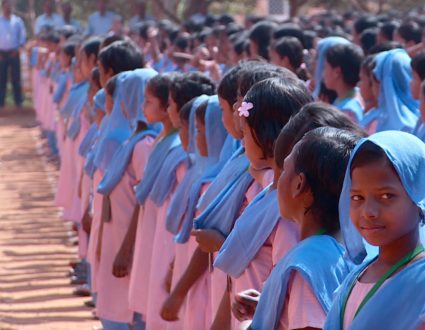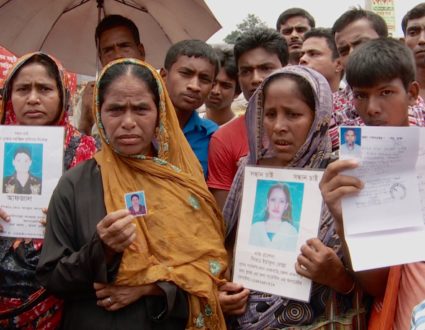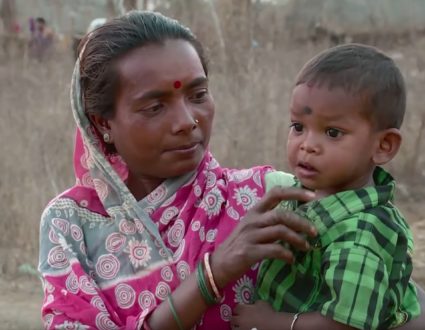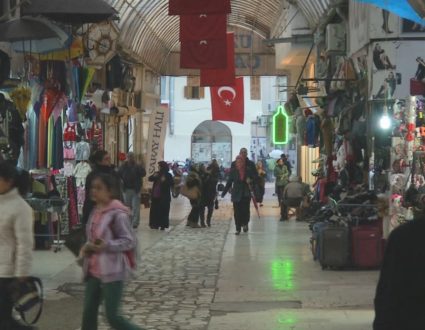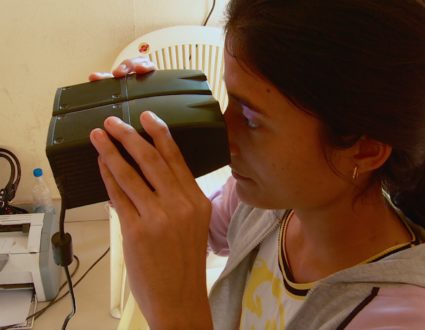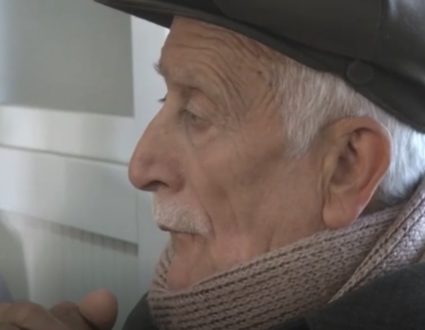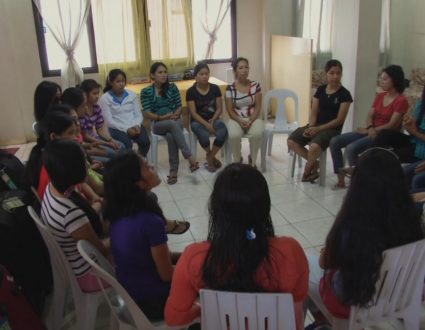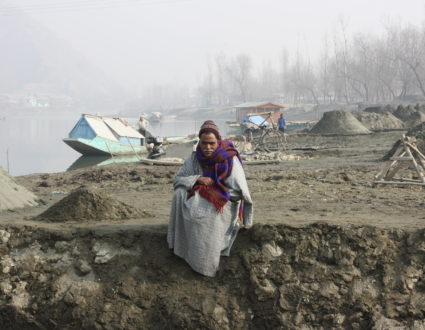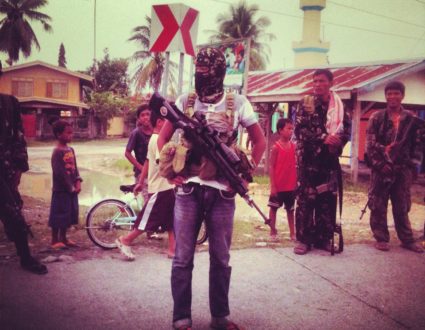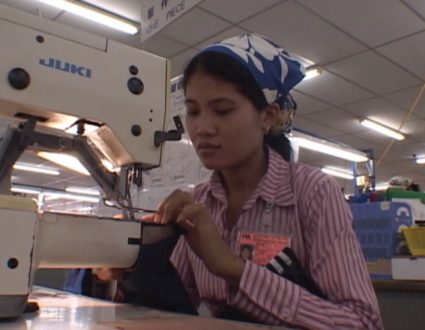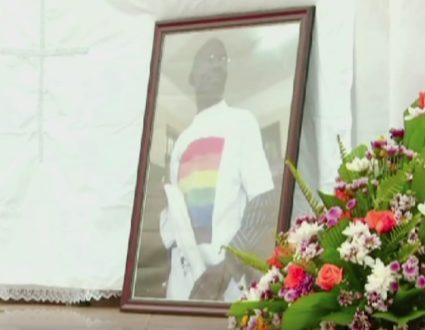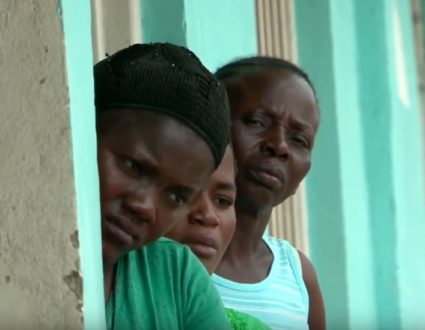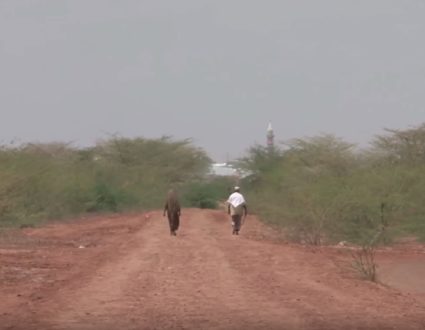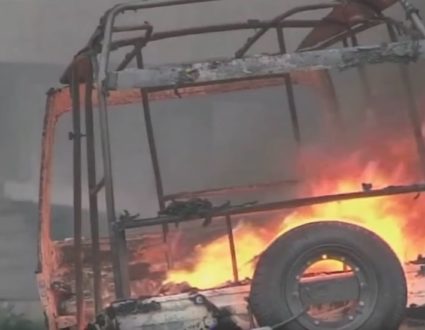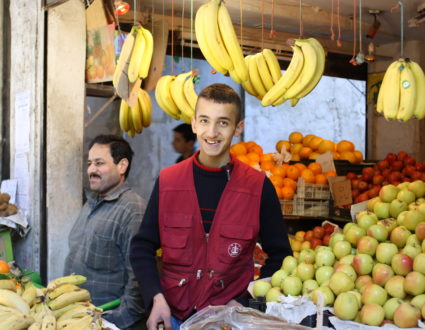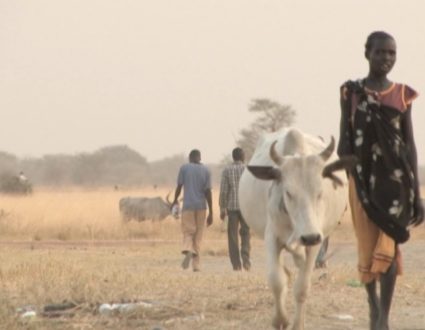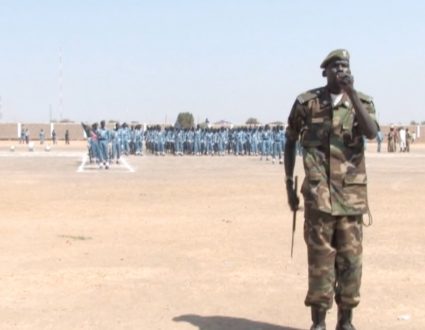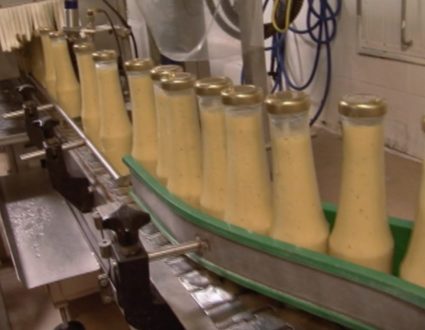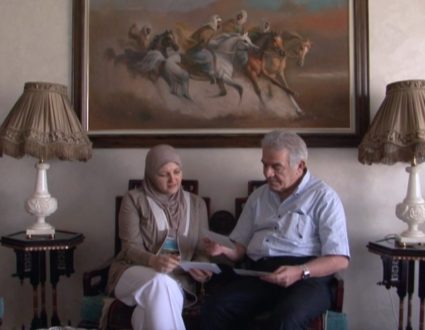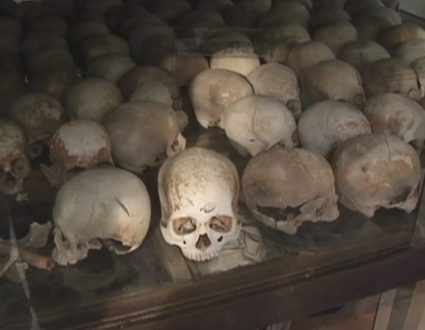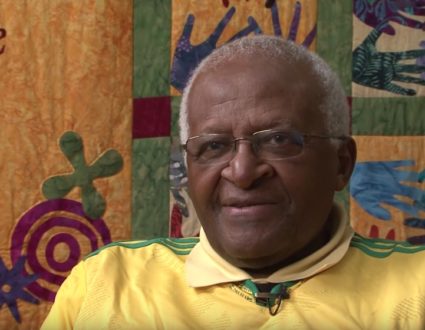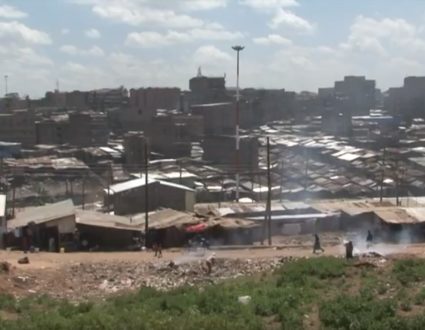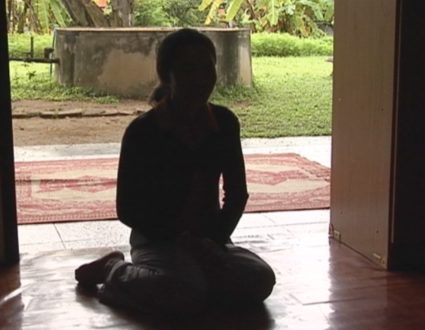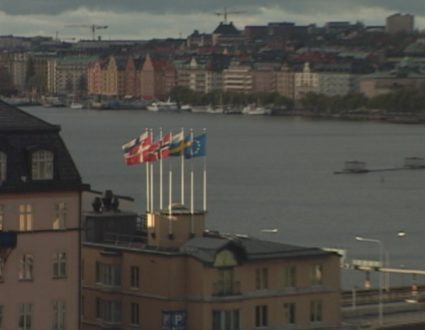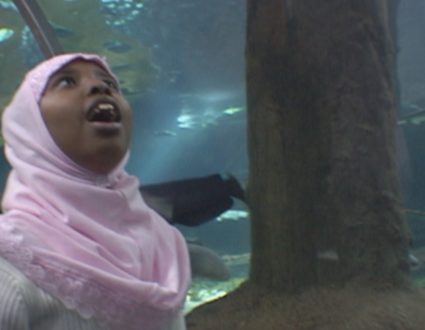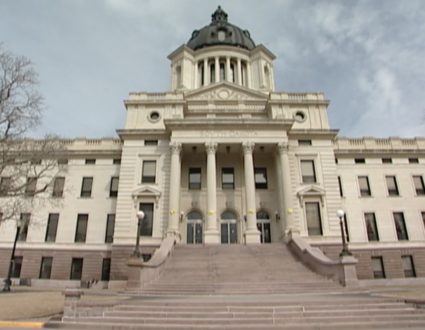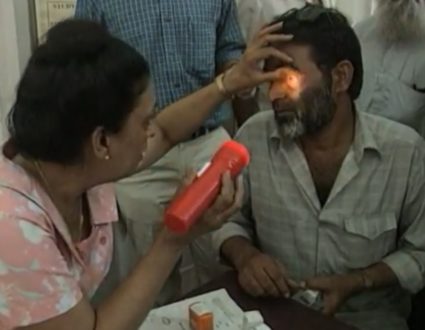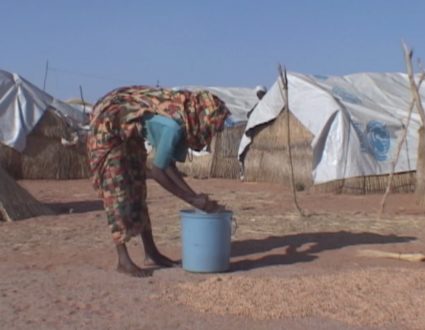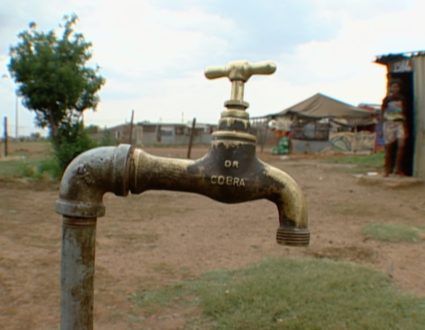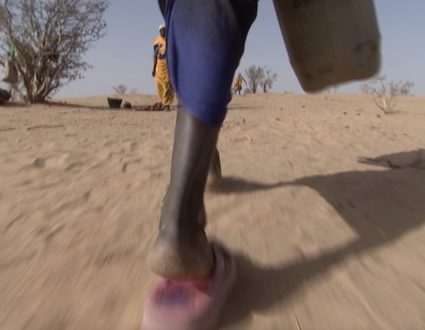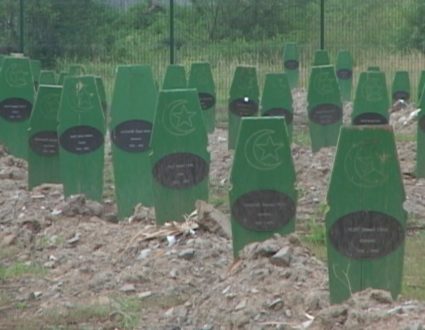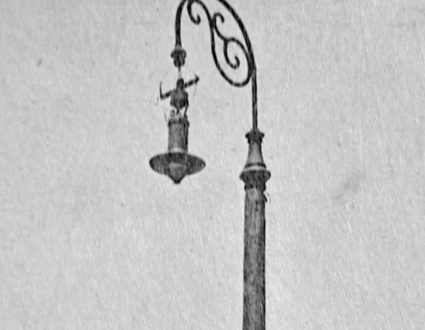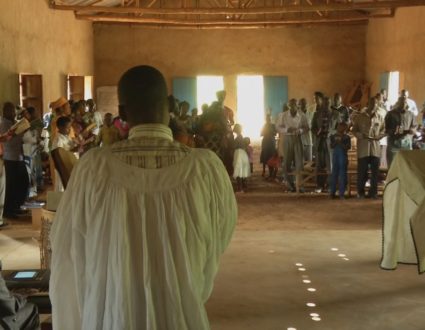William Brangham:
South Africans will vote in their national election on Wednesday, and there could be a strong challenge to the ruling African National Congress.
As special correspondent Fred de Sam Lazaro reports, a new wave of xenophobic attacks has put the issue of immigration front and center.
Fred de Sam Lazaro:
At this campaign rally for the Economic Freedom Party, once the youth wing of the ruling African National Congress, the frustration was evident.
Man:
We are tried of joblessness and poverty in our country.
Fred de Sam Lazaro:
Unemployment in South Africa hovers at 27 percent. And youth unemployment is nearly double that.
It’s felt most acutely in the townships, impoverished settlements built under apartheid to segregate the black, Indian and mixed or colored communities from the minority white population.
Preggie Chetty sells used clothes on the side of the road. He lost his factory job years ago, now barely ekes out a living, and he blames in part immigrants.
Preggie Chetty:
You get a lot of foreigners into the country here. And they’re being paid with a less salary. And our local guys, they can’t get jobs.
Fred de Sam Lazaro:
That sentiment has provoked spasms of xenophobic violence in recent years. Convenience stores have often been an all-too-convenient target.
These stores are largely owned by immigrants today, as are the wholesalers that supply them.
Ali Osman, who heads a trade association of Somali businesses, says he is grateful to be in South Africa.
Ali Osman:
We came with nothing. We have been given the opportunity to conduct businesses, freely move around the country, settle wherever we need to settle. So that is the good part of it.
Fred de Sam Lazaro:
The bad part, he says, is the violence targeting immigrants, who make up about 3 percent of the country’s 57 million people.
Over the past decade, hundreds of immigrants have been injured and dozens killed. Johannesburg’s Mayor Herman Mashaba says the problem is economic, not xenophobic.
Herman Mashaba:
When these foreign nationals come into South Africa, unfortunately, because of the economic situation, where do they go? They go into poor communities. And those poor communities, unfortunately, they feel that these people are taking their jobs, or whatever.
Fred de Sam Lazaro:
But many blame Mashaba himself for inciting violence. The mayor, once an ANC supporter, is now part of the opposition Democratic Alliance.
He’s blamed many of the city’s problems on an uncontrolled numbers of undocumented foreigners. This Twitter post was in response to a citizen complaint about poor trash service.
Vusmuzi Sibanda:
So, basically, in his tweet, he implied that the dirt is not picked because there are too many migrants. Now…
Fred de Sam Lazaro:
He’s blaming the lack of garbage pickup on too many migrants?
Vusmuzi Sibanda:
Exactly, yes. You know, government officials, instead of taking accountability for their failures, they then blame the migrants for the social ills like crime and lack of housing.
Fred de Sam Lazaro:
Vusumuzi Sibanda is an immigrant from neighboring Zimbabwe, where a collapsing economy and political turmoil have driven many to flee.
Vusmuzi Sibanda:
Good morning.
Audience:
Good morning.
Fred de Sam Lazaro:
Sibanda is suing to get children among these migrants, most of them undocumented, into public schools. It’s their right, he insists, and also it is in the host country’s interest.
Vusmuzi Sibanda:
We’re actually creating a situation where these children are either going to become, what, criminals, social misfits because they have no education. What will they do without an education?
Fred de Sam Lazaro:
Why do they come?
Loren B. Landau:
The migrants come to South Africa for the same reasons that anyone moves, but there are clearly a significant number of people here who are looking for safety.
Fred de Sam Lazaro:
Professor Loren Landau says they are fleeing conflict in Somalia, Congo and elsewhere, but others, including many from South Asia, come to start businesses or ply their skills in the continent’s largest economy.
Loren B. Landau:
Electricians, builders, others. But we also see a lot of teachers, doctors, medical professionals who are coming in.
Fred de Sam Lazaro:
Zimbabwe’s disintegration dashed any career hopes of people like Fortunate Ndlovu, who once dreamed of becoming a lawyer. Today, she shares an immaculate one-room shack with her husband, Mandla Sibanda, and their young son. Together, they support at least five family members back in Zimbabwe.
How has it been in South Africa so far?
Fortunate Ndlovu:
It’s OK because, if you go around, you can get some piece works.
Fred de Sam Lazaro:
Some piece work?
Fortunate Ndlovu:
Yes.
Fred de Sam Lazaro:
Ndlovu gets occasional work as a house cleaner. Her husband works in a local restaurant.
Fortunate Ndlovu:
We just take anything that comes, because half-bread is better than nothing at all.
Fred de Sam Lazaro:
Half-a-bread is better than nothing?
Fortunate Ndlovu:
Yes. We are here to work, only to work, not to go and break the law.
Fred de Sam Lazaro:
She says immigrants have been unfairly characterized as lawbreakers. Mayor Mashaba, for one, has railed against what he calls rampant criminal activity in the city’s immigrant population. But he insists he’s not anti-immigrant.
Herman Mashaba:
This country, the city of Johannesburg, it was built on the back of migrants. But they must come here legally. And when they’re here, they must respect our laws. This, for me, is not negotiable.
Loren B. Landau:
Clearly, there are criminals among the migrant population. What you see, however, is, he sends the police out to find migrant criminals, and then parades them, as if all of the criminals in towns are migrants. Migrants are no more prone, and in fact less prone, to criminal activity than South African citizens.
Fred de Sam Lazaro:
But the arguments around immigration, echoing those heard in the U.S., are likely to get only louder as Election Day nears.
For the “PBS NewsHour,” I’m Fred de Sam Lazaro near Johannesburg, South Africa.
William Brangham:
Fred’s reporting is a partnership with the Under-Told Stories Project at the University of St. Thomas in Minnesota.
Voting 25 Years Post-Apartheid
The ANC held onto its power in South Africa’s divisive elections that were only enflamed by a recent wave of xenophobic attacks that put the issue of immigration front and center amid growing frustration with high rates of unemployment and poverty. Special correspondent Fred de Sam Lazaro reports.
immigrants are other Africans
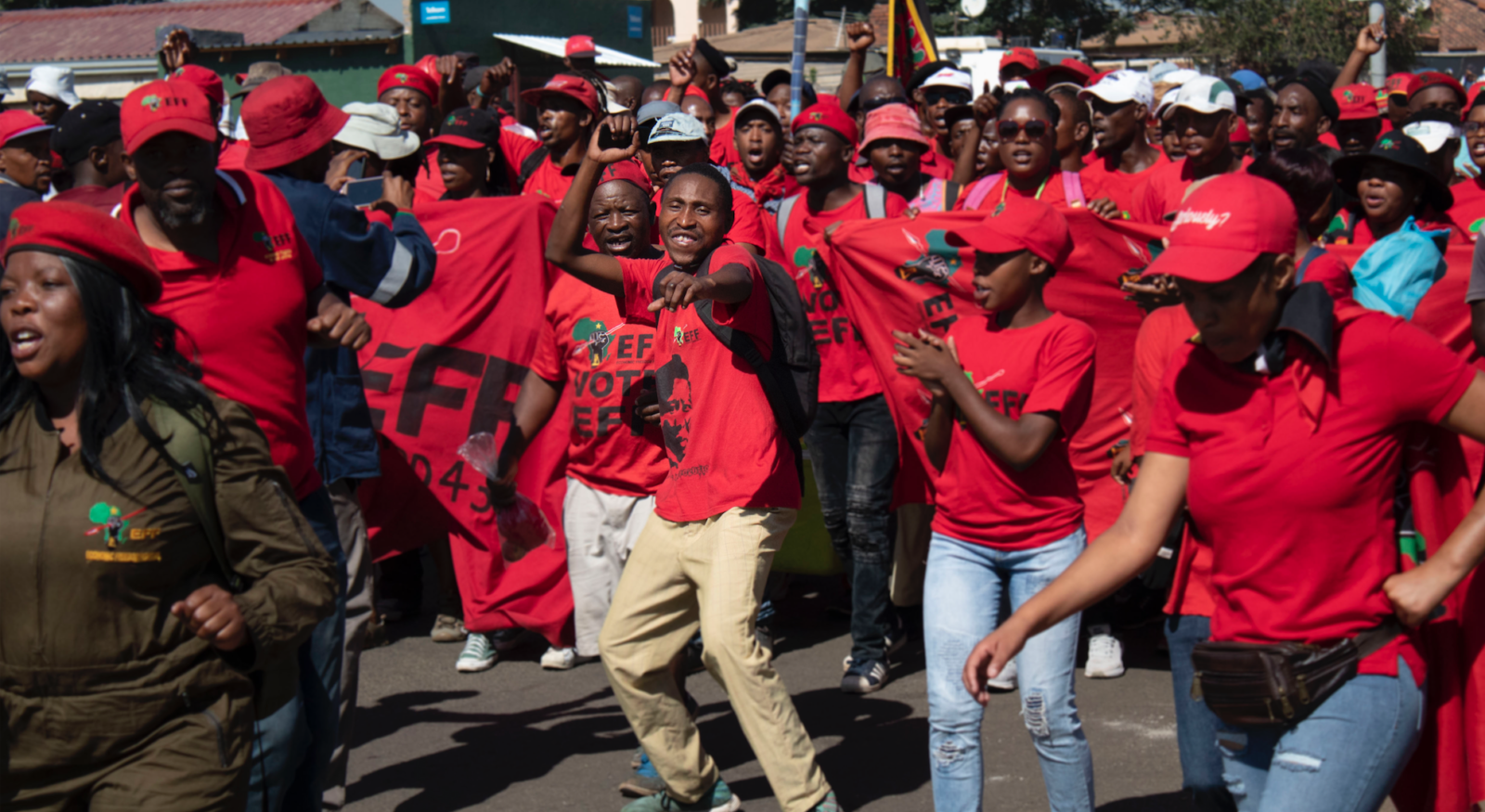
Unemployment, Corruption and Immigration
These are some of the most divisive issues in South African politics 25-years after the end of apartheid. At this campaign rally for the Economic Freedom Party, once the youth wing of the ruling African National Congress, the frustration was evident.
